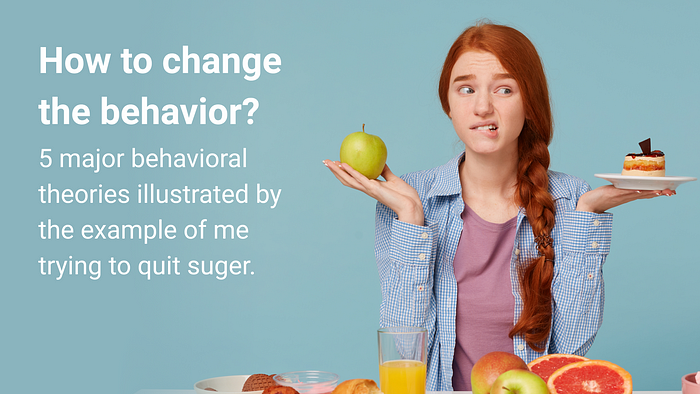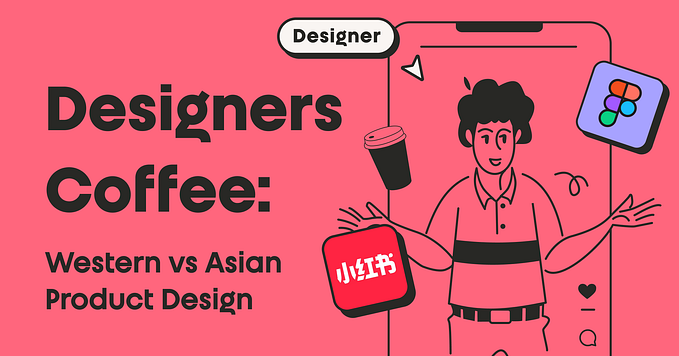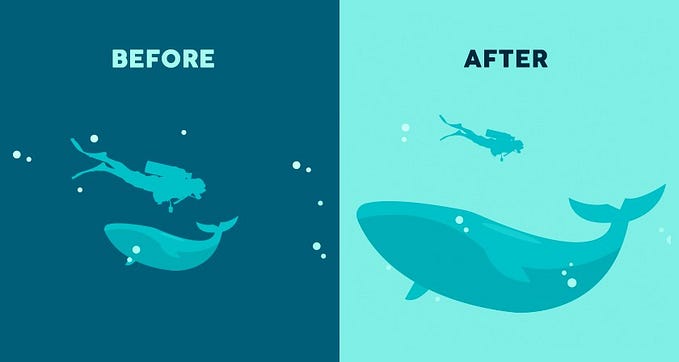Member-only story
Major behavioral theories, explained
Behavioral theories explain why the behavior occurs, how to achieve and maintain it.
We will review 5 theories most relevant to the experience design:
- Transtheoretical model
- Theory of planned behavior (based on the theory of reasoned action)
- MINDSPACE approach
- Fogg model
- Hook model (similar to the model of Charles Duhigg described in his book “The Power of Habit” and also to the engagement loop by Amy Jo Kim that we have reviewed in Gamification 101)
To illustrate the theories we will take the example of me trying to quit sugar.

Transtheoretical model
Prochaska and DiClemente based their transtheoretical model on more than 300 theories in psychotherapy. This is why it’s transtheoretical.
They suggest that the behavior doesn’t change immediately. The behavioral change process goes through 6 stages. In each stage, different strategies can be applied to facilitate the behavior.

The first stage is pre-contemplation. At this point, people don’t have an intention to take an action within the next 6 months. When I was a child I didn’t consider stop eating sweets at all.
At the contemplation stage, people start thinking about the target behavior. But they are not ready yet for immediate action. I am thinking that sugar might be unhealthy for me but don’t do anything about it.
At the preparation stage, people start planning how to change the behavior. I am looking for suger-free recipes.
Yey, action stage 🎉. People have changed their behavior. In the next 6 months, their new behavior is unstable, they can easily go back to any previous stage. No sweets in my life anymore.
At the maintenance stage, the lifestyle has changed. People have developed new processes. They still can relapse though until they reach (or don’t reach) the termination stage when they don’t want to drop the…









